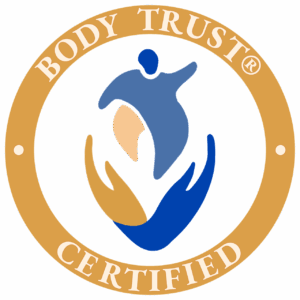Find Support That Finally Makes Sense for Your Brain and Body
Evidence-based Treatment for Eating Disorders, ARFID, OCD, and BFRBs adapted for neurodivergent children, teens, and adults
If you’ve tried therapy before and left feeling unseen or misunderstood, you’re not alone. Maybe you’re exhausted from masking, stuck in spirals of intrusive thoughts, struggling with food and body, or consumed by perfectionism. Maybe you’re parenting a neurodivergent child and wondering why nothing seems to help. At Side Quest Psychotherapy, you’ll find a safe, affirming space where your wiring is respected, your story is believed, and your needs are taken seriously.



 Hi, I’m Jenna Stone, LCSW-C (she/they)
Hi, I’m Jenna Stone, LCSW-C (she/they)
I started Side Quest Psychotherapy because I know how hard it can be to go through therapy and still feel like no one really understands you. If you’re neurodivergent, you may have been told you’re “non-compliant” or “treatment-resistant,” when in reality the treatment was simply a mismatch. I’ve been there too, and that experience is what drives the work I do today.
I provide comprehensive, neuroaffirming evaluations and therapy for adults and kids navigating eating disorders, ARFID, OCD, body-focused repetitive behaviors, chronic illness, and identity-related stress. Instead of focusing on compliance, the work we do together is about what truly helps — building connection, honoring autonomy, and creating safety while addressing the barriers that stand in the way.
Here, you or your child can begin to step out of burnout, loosen the grip of OCD and anxiety, make peace with food and body, and reclaim a sense of worth that isn’t tied to productivity or perfectionism. Most importantly, you can expect to feel fully seen, deeply understood, and supported in ways that honor who you are.
Who I Work With
I support children (10+), teens, and adults who are navigating:
ADHD, autism, PDA, and sensory differences
Anxiety, OCD, and chronic overthinking
Eating disorders, ARFID, and body image struggles
Hair pulling, skin picking, and other BFRBs
Chronic and invisible illnesses that impact daily life
Burnout, perfectionism, and masking fatigue
Neurodivergent identity, gender, and queerness
Parenting challenges with sensitive or dysregulated kids
How I Can Help
My approach combines evidence-based care with harm reduction and nervous system regulation, adapted to your unique wiring. This may include:
Neuroaffirming evaluations to clarify strengths, support needs, and next steps
Post-diagnosis support to integrate identity with compassion and confidence
Anxiety and OCD treatment to rebuild trust in your senses and reduce fear’s control
Eating disorder treatment that prioritizes safety, autonomy, and your definition of recovery
ARFID support that respects autonomy and sensory needs while expanding possibilities
BFRB support that addresses triggers, unmet needs, and practical strategies for lasting change
Stress and burnout tools that fit real life and honor your limits
Family support to reduce conflict and strengthen connection
Choose Your Own Adventure
Autism & ADHD Assessments
Neuroaffirming evaluations that bring clarity. Get documentation for school or workplace accommodations, access to medication, and recommendations for your care team.
Neurodivergent Exploration
Therapy to help you understand your wiring. Make sense of your experiences, identify support needs, and navigate life with a neurodivergent brain and body. No diagnosis required.
Psychotherapy Services
Evidence-based treatment for OCD, eating disorders, and related concerns. Includes meal support, executive function coaching, sensory strategies, self-advocacy, and practical life skills.
Parent/Caregiver Support
Guidance for parents of neurodivergent kids. Focus on low-demand parenting, responsive feeding, collaborative problem-solving, and support for complex challenges like PANS/PANDAS.
Professional Consultation
Consultation for providers and teams. Build skills to better support neurodivergent clients and co-create projects that advance affirming, justice-aligned care.
Workshops & Speaking
Trainings and workshops for providers, educators, and organizations. Topics include OCD, eating disorders, PDA profiles, nervous system informed care, and anti-carceral practices. Available live or on-demand.
What Guides Our Work
📊 Evidence-Based Approaches
📖 Lived and Clinical Expertise
🔍 Curiosity over Pathology
🛠 Care Designed for You
🌿 Nervous System Informed
🏳️🌈 Identity Affirming
💎 Health at Every Size® and Body Trust®
What You Won't Find Here





Healing isn’t a solo quest. I team up with doctors, psychiatrists, dietitians, occupational therapists, and speech-language pathologists so you have a whole party backing you on your journey.
Ready for support that actually fits your brain and body?
Your side quest for therapy or an evaluation starts here.


